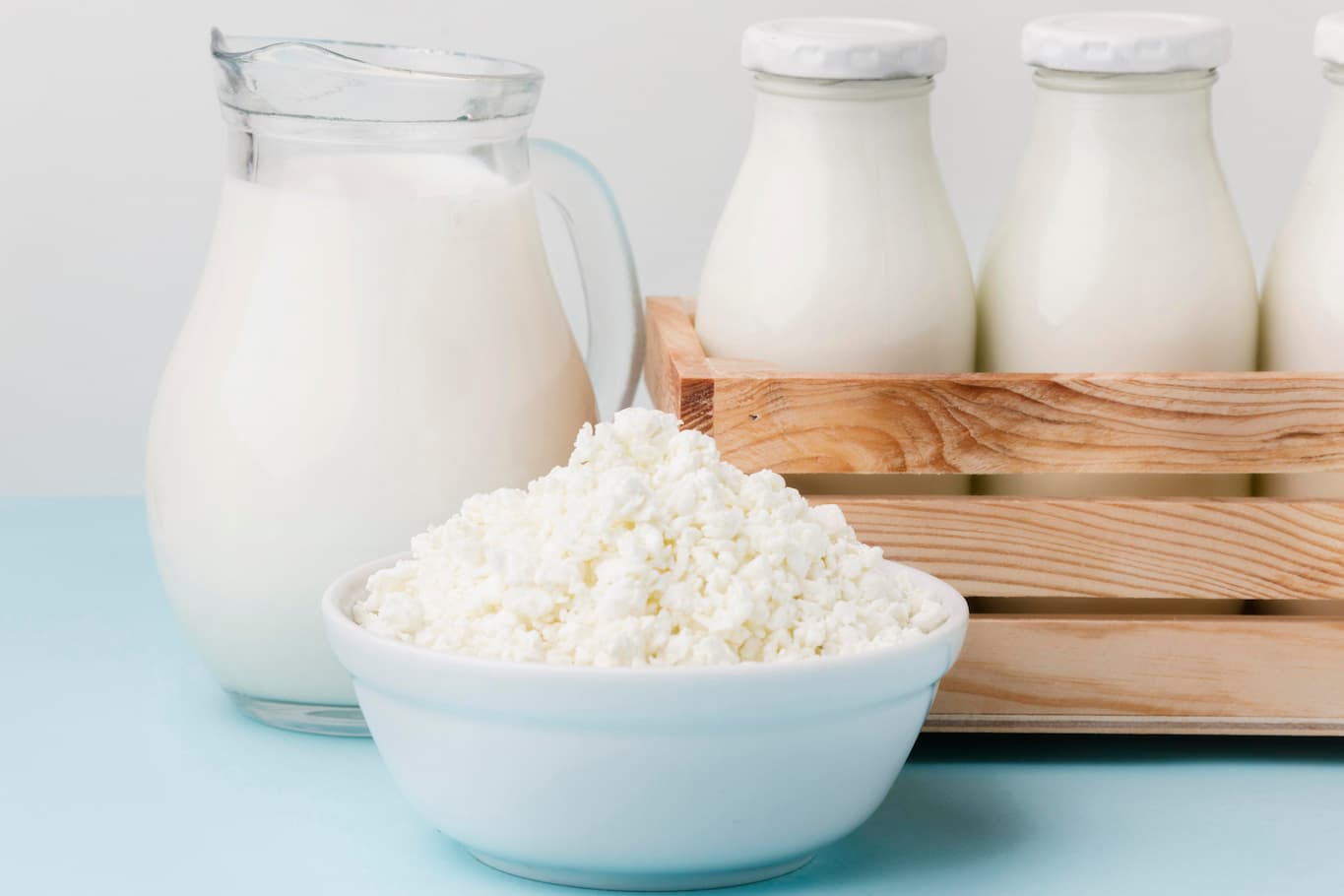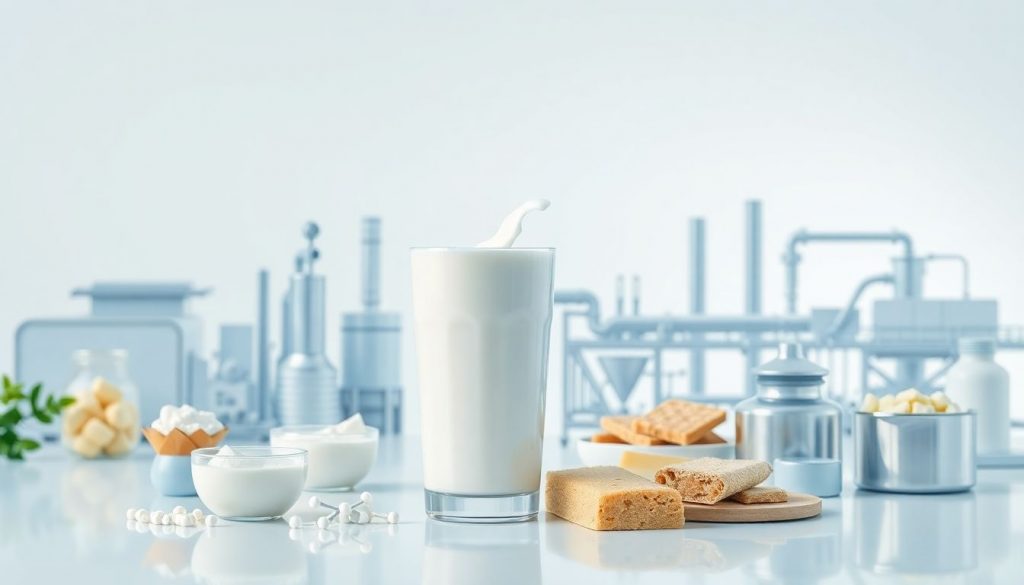Milk protein supplier to the food industry

Milk protein is an essential component in the food industry, widely used for its functional properties and nutritional benefits. It is mainly composed of casein and whey proteins, each with specific characteristics that make them suitable for various applications.
Types of milk proteins
- Casein: Represents approximately 80% of milk proteins. It is insoluble at pH 4.6 and is used in the manufacture of cheeses and fermented milk products because of its ability to form gels and firm structures.
- Whey proteins: Make up about 20% of the remaining 20% and are water-soluble. They include alpha-lactalbumin and beta-lactoglobulin, known for their high nutritional quality and rapid digestibility, and are key components in sports supplements and infant formulas.
Applications in the food industry
Milk proteins are incorporated into a wide range of food products due to their functional properties:
- Texture improvers: used in products such as yoghurts, cheeses and desserts to provide a creamy and consistent texture.
- Emulsifiers: They help in the formation and stability of emulsions in products such as sauces and dressings.
- Nutritional supplements: Due to their essential amino acid profile, they are main ingredients in protein supplements for athletes and people looking to increase their protein intake.

Nutritional benefits of milk proteins
Milk proteins offer multiple health benefits:
- Contribution of essential amino acids: They contain all the essential amino acids necessary for the organism, favouring protein synthesis and the maintenance of muscle mass.
- Bioavailability: They are highly digestible and efficiently absorbed, making them ideal for people of all ages.
- Strengthening of the immune system: Some protein fractions, such as lactoferrin and immunoglobulins, contribute to the body’s defence against infections.
Considerations for industry
When selecting a supplier of milk proteins, it is essential to consider:
- Quality and purity: Ensuring that the proteins meet quality standards and are free of contaminants.
- Functionality: Choose the type of protein that best suits the needs of the final product, whether in terms of solubility, gelling capacity or emulsifying properties.
- Health regulations: Check that the supplier complies with current food safety regulations and international certifications.
Beurrespa: Your partner in dairy ingredients
At Beurrespa, we specialise in the manufacture and distribution of high quality dairy products for the food industry. We offer a wide range of milk proteins, including concentrates and isolates, adapted to the specific needs of our customers. Our commitment to quality and service makes us the ideal partner in the development of innovative and nutritious products.
Frequently asked questions about the food industry
What is the difference between casein and whey proteins?
Casein is a slow-digesting protein that provides a sustained supply of amino acids, whereas whey proteins are digested quickly, offering a rapid release of amino acids into the bloodstream.
Are milk proteins suitable for lactose intolerant people?
Some milk protein concentrates and isolates have a very low lactose content, but people with intolerance should consult the product specifications and, if in doubt, seek suitable alternatives.
How are milk proteins obtained?
Milk proteins are extracted from milk by filtration and separation processes, such as ultrafiltration and diafiltration, which allow the proteins to be concentrated and unwanted components to be removed.
What are the applications of milk proteins in vegan products?
Milk proteins are not suitable for vegan products, as they are of animal origin. For these products, vegetable proteins such as soy, pea or rice proteins are used.
What is the shelf life of milk protein powders?
Generally, they have a shelf life of 12 to 24 months, depending on storage conditions and the type of product. It is important to keep them in a cool, dry place to preserve their quality.
